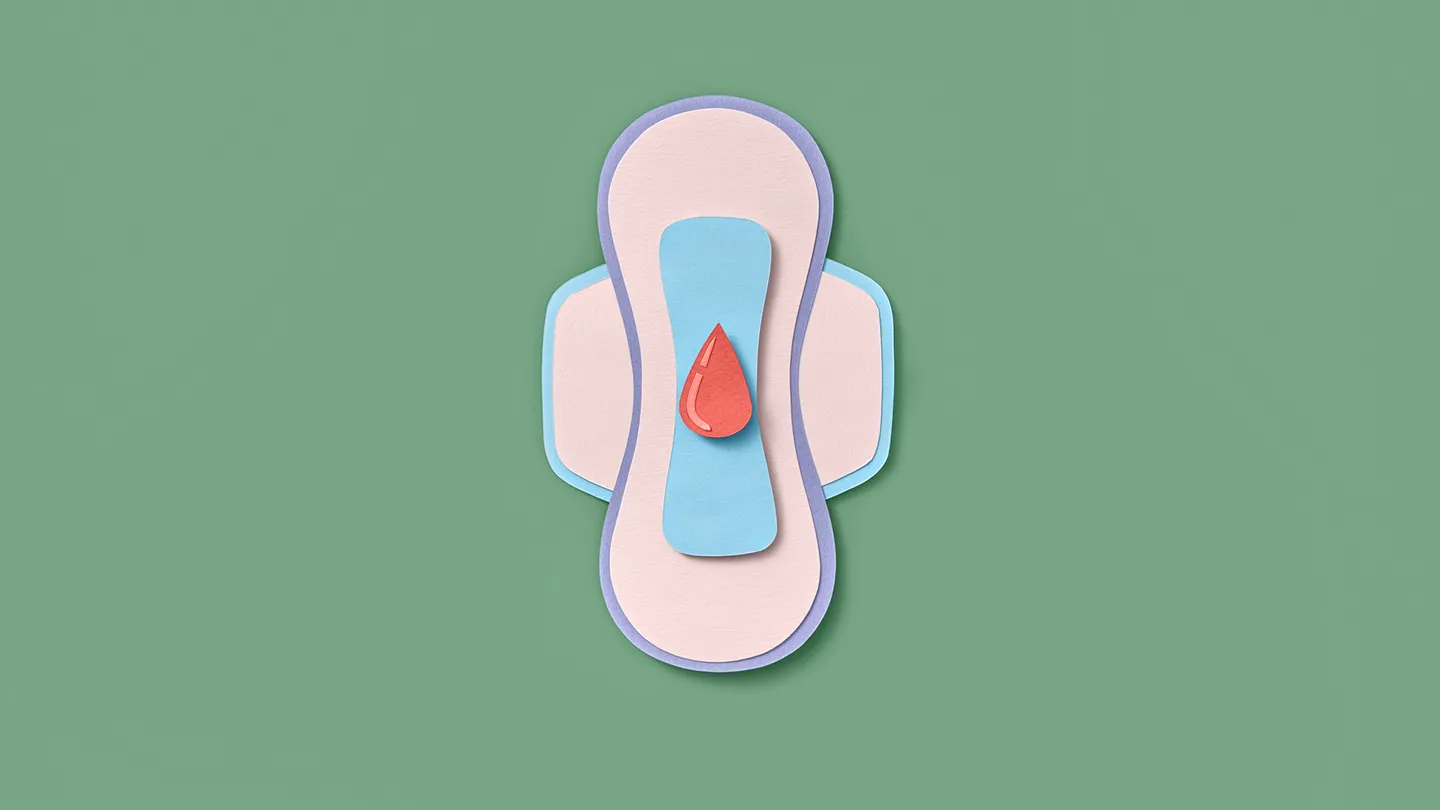Implantation bleeding is light vaginal bleeding that happens when a fertilized egg implants in the uterus. It’s different from a menstrual period, which is heavier bleeding that happens for a few days in every menstrual cycle (with some variation from person to person).e60dc2a1-f33c-4a05-9b50-8e3e8e597629c06721df-7f1d-462d-bc32-a02f38c71482 It’s important to recognize the difference between implantation bleeding symptoms and early pregnancy signs . That way, you can get a pregnancy test to confirm if you are pregnant, and then start prenatal care.
What Is the Menstrual Period? Menstrual Periods The menstrual cycle prepares the body for a possible pregnancy. If no pregnancy occurs, the cycle concludes with a menstrual period, where the uterine lining sheds along with blood.e60dc2a1-f33c-4a05-9b50-8e3e8e597629abb1b177-2a48-47cf-a6b1-49b901deacf7 The menstrual cycle consists of four phases.e60dc2a1-f33c-4a05-9b50-8e3e8e597629abb1b177-2a48-47cf-a6b1-49b901deacf7 The Follicular Phase During this phase, one egg matures and the uterine lining (endometrium) grows and thickens in preparation for pregnancy. Ovulation A follicle releases the mature egg. The Luteal Phase The egg leaves the ovary and travels to the uterus. During this time, the egg will either become fertilized by sperm and implant in the uterus, or without a fertilized egg, will trigger a menstrual period. The Menses Phase The uterine lining sheds, along with some blood, in a menstrual period. The average menstrual cycle is 28 days, although everyone is different. The cycle can range from 21 to 35 days. Menstrual periods usually last between 3 and 7 days.e60dc2a1-f33c-4a05-9b50-8e3e8e597629abb1b177-2a48-47cf-a6b1-49b901deacf7 Menstrual bleeding symptoms, such as cramps or bloating, can start before the actual bleeding begins.e60dc2a1-f33c-4a05-9b50-8e3e8e59762971003814-d0ea-4673-b64a-59b9cb9c1e5a
Implantation Bleeding Implantation Bleeding Implantation bleeding is a small amount of spotting or bleeding in the very early days of pregnancy. It usually happens 10 to 14 days after conception.e60dc2a1-f33c-4a05-9b50-8e3e8e59762921c99652-7dde-42f0-ba77-ecc5f0670614 Approximately 25 percent of women experience implantation bleeding in early pregnancy, and it is not a cause for concern.e60dc2a1-f33c-4a05-9b50-8e3e8e59762955bb60f5-7670-4582-a275-e5ab66f05372 Implantation spotting happens when a fertilized egg implants in the lining of the uterus. The uterine lining has many blood vessels to nourish and support the growing fetus. As the fertilized egg implants, it can rupture some of these vessels, causing the bleeding.e60dc2a1-f33c-4a05-9b50-8e3e8e59762955bb60f5-7670-4582-a275-e5ab66f05372 Implantation bleeding can be an early sign of pregnancy, and goes away on its own.e60dc2a1-f33c-4a05-9b50-8e3e8e59762955bb60f5-7670-4582-a275-e5ab66f05372
Implantation Bleeding vs. Periods: Key Differences Key Differences The main differences between implantation bleeding and menstrual periods are the heaviness of the bleeding and the reason for it. “Implantation bleeding is usually lighter than menstrual bleeding and occurs when a fertilized egg attaches to the uterine lining, whereas period bleeding is heavier and results from the shedding of the uterine lining,” explains Sahar Wertheimer, MD , a board-certified reproductive endocrinologist at HRC Fertility in Beverly Hills, California. These are some other differences between implantation bleeding and a period.e60dc2a1-f33c-4a05-9b50-8e3e8e597629b065970f-c34f-47dc-bd94-c5f9274831dee60dc2a1-f33c-4a05-9b50-8e3e8e59762936053ec9-992f-4064-b1db-8ed470330cbae60dc2a1-f33c-4a05-9b50-8e3e8e59762971b6b4a2-6704-4348-957e-c86eebcd9368
What Other Factors Could Influence Bleeding? Other Causes of Bleeding Implantation and menstrual periods are not the only causes of vaginal bleeding. These are some other possible causes.e60dc2a1-f33c-4a05-9b50-8e3e8e597629bf684cbc-53a5-4778-844f-fd53d16e653b Early pregnancy complications like ectopic pregnancy or miscarriage Growths like cervical polyps, endometrial polyps, uterine polyps, or uterine fibroids Hormone fluctuations from thyroid disease, polycystic ovary syndrome (PCOS) , or birth control pills Infections like vaginitis, chlamydia , gonorrhea , or cervicitis Irritation from sex, an injury, a Pap smear , obstetric or gynecological surgery, or sexual abuse Cancer, such as uterine cancer , vaginal cancer, cervical cancer , or ovarian cancer Other medical conditions, such as celiac disease , obesity , kidney or liver disease, or blood clotting disorders Hormonal Birth Control Bleeding or spotting can also be caused by hormonal birth control. Doctors call this “breakthrough bleeding.” Any type of hormonal birth control method, including the pill, implant, shot, patch, vaginal ring, and IUD, can cause this symptom.e60dc2a1-f33c-4a05-9b50-8e3e8e597629b2a93884-bf13-43a8-aa37-5acba76183d2 Breakthrough bleeding is more common in people who take a continuous dose of hormones to skip their period, and in those who smoke cigarettes.e60dc2a1-f33c-4a05-9b50-8e3e8e597629b2a93884-bf13-43a8-aa37-5acba76183d2 Stress During stressful times, your body produces more hormones like cortisol and endorphins. These hormonal changes can make periods more erratic. Some people are late or skip periods entirely when their stress is long-term.e60dc2a1-f33c-4a05-9b50-8e3e8e597629e190b003-eaa9-4b11-8c99-471aaeede0f6 Significant weight gain or loss, infection, and extreme exercise can also lead to irregular bleeding.e60dc2a1-f33c-4a05-9b50-8e3e8e597629f5a5a2ec-1a7c-4fed-b3f4-085ceb67ba1a When should you consult a doctor about bleeding? “While occasional spotting is common, you should check in with a healthcare provider if you experience heavy or prolonged spotting outside of your normal cycle, severe cramping or pelvic pain, large blood clots, dizziness, fainting, or excessive fatigue,” says Irene Woo, MD , an obstetrician and gynecologist who practices in Encino and Santa Clarita Valley, California. If you bleed during pregnancy, call your doctor right away.
When to Take a Pregnancy Test Testing for Pregnancy Pregnancy tests work by detecting a hormone called human chorionic gonadotropin (HCG). The placenta makes this hormone during pregnancy to thicken the uterine lining for the growing baby.e60dc2a1-f33c-4a05-9b50-8e3e8e5976296f26fbf2-8df9-4c00-b716-1cdff9a92ee7 You can take a test to confirm pregnancy as early as the first day of your missed period, but waiting will give you more reliable results. “If you’re unsure, waiting at least a week after potential implantation bleeding can help ensure accuracy,” says Dr. Woo. While it may be tempting to test when you’re experiencing symptoms of implantation bleeding, it’s likely too early to detect a pregnancy on a home test.e60dc2a1-f33c-4a05-9b50-8e3e8e5976294496682f-6be7-42cb-b2e3-55bda14fcbeb Not sure which pregnancy test to choose? Check out this home pregnancy test guide . You can learn when you ovulate and when to expect your periods by tracking your cycle. Period tracking can show you when in the cycle you’re most fertile and most likely to conceive, and help you notice any changes or problems.e60dc2a1-f33c-4a05-9b50-8e3e8e5976299e179f7c-3fac-4138-95c3-2814a8b26f01
The Takeaway Menstrual bleeding is the shedding of the uterine lining that happens every menstrual cycle when a fertilized egg doesn’t implant. Implantation bleeding is when a fertilized egg implants in the uterine lining during early pregnancy. Other possible causes of vaginal bleeding are cysts, polyps, infections, cancer, injury to the vagina during sex, or a Pap test. If you suspect implantation bleeding, take a pregnancy test a week after the bleeding starts for the most accurate results. Call your doctor if bleeding is very heavy or accompanied by symptoms like severe pain or dizziness, or if you’re bleeding during pregnancy.
Resources We Trust Cleveland Clinic: Implantation BleedingMedlinePlus: MenstruationMayo Clinic: Delaying Your Period With Hormonal Birth ControlNational Health Service: Vaginal Bleeding in Pregnancy Harvard School of Public Health: Benefits of Tracking Your Period
Read the full article here
Leave a comment




